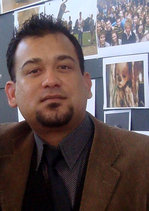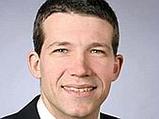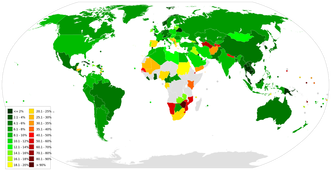
Region: Nepal
Category: Music & Society
The Nepal Music Festival is not only a celebration of music, but of the different cultures and communities in Nepal. The festival unites people both domestically and internationally, highlighting that the Nepalese society can corporate despite major differences. Attracting international artists, Nepal is slowly becoming known for something else than extreme poverty. Nepalese history demonstrates that music has always been a key element for the population, which has made many exceptionally enthusiastic about the festival. The festival is especially encouraging the younger generations to stay in their country and make a difference and fight poverty.
The founder, Ranjan Ojha completed secondary school in Nepal, after which he moved abroad. He attended universities in both England and Denmark: having studied international development at Roskilde University, Leadership at University College of Sealand and business studies as well as achieving a master in science at the De Montfort Leicester University. In 2008, Ranjan was the chief Coordinator of the Nepalese Students Network and in 2010 he became vice president of Global Medical Aid. Following by the Nepal Music Festival, which he initiated in June 2011. The organization stands for “3P”, which is the first of its kind in South Asia. 3P represents People, Progress and Peace.
The vision of the organization is to build peace, cultural and educational platforms through out time, which will create sustainable development in Nepal. This will be done by establishing trust and supporting the engagement of stakeholders from around the world.
Could you tell us more in-depth about the peace aspect of your project in Nepal? How has the situation (government corruption and poverty) in Nepal affected your project?
Despite the ongoing worse scenario of political, economic and social instability in the country, we (Nepali people) should not give up our esteem; but instead join hands for unity, harmony and hope for a better future. This is our voice!
Thousands of young people have joined Nepal Music Festival 2012 which shows the value of our music and culture that binds our diversity and also manifests the strong message of ‘’people, peace and progress’. Music and culture has its own meaning and is one of the major tools that in fact brings cohesion in the Nepalese society in wider terms.
Most Importantly, in the times of divisions in society, festivals where thousands of people came together, ultimately gives the feelings and message of unity and cohesiveness that resembles peace. Further, we also say its not enough. Nepalese people should work together constructively in creating better, competitive and prosperous future by their own hands. We should focus on our synergy and strengths, and of course our own recourses, that can be utilized to make the country move forward, which we believe is possible.
Peace gives immense pleasure to think about and work towards. When the project is going through a negative phase, it helps to talk about hope and the peace aspects. It benefits us to think; that if we fully dedicate ourselves to change, then it can be achieved.
We have not experienced any problems so far. We know there might be obstacles on the road; poverty, education, jobs, health, innovations and lot of other factors are amongst the major challenges, but on the other hand, these problems are the source of inspiration to strive on. I believe there are not any problems that can’t be overcome. The question is how much do we strive towards it and how long does it take. And regarding the government, I am very optimistic; they will be the shoulder to lean on. We trust in common efforts and look forward to work closely with them and any entity that wants to add value in the mission and contribute in this process in taking forward.
How did you get the idea for your project and what was it like starting it? What was easy and what was difficult in this process?
It originally started with my former lecturer Mr. Ian Choo and few of my close and enthusiastic friends here in Denmark who were inspired and willing to do something for Nepal. We all agreed to run a volunteer run non-profit yearly festival where people can gather and celebrate for People, Peace and Progress in an international musical environment. On the run, we were also able to articulate our vision to our various friends in Denmark, Nepal and abroad and everyone was willing to be part of. Now we have support from various people, professionals, volunteers and organization. We are also happy to have support from the Nepal Tourism Board the government body.
The easy part, was my team, we immediately agreed on the concept and to move forward. We had a few challenges of having our own recourses, expanding our networks, telling our vision and stories, convince people and organization to support us. But now we have more people and organization that have already tied up the collaborations and more have already requested to join. I think this is going great.
How do you personally think your project contributes to development? And how does this relate to social entrepreneurship?
Nepal has massive possibilities in natural and cultural recourses for example tourism, agriculture, hydropower, cultural industries etc. But I don't think there has been a sufficient action plan to take the maximum benefit out of it and making these recourses the main backbone of our economy. Despite having our own strengths, that has to be explored, we have become a kind of parasite and have spent decades relying on others. The big question is, how long we can be dependent on the developed nations and how long can this be sustainable? That is why we say, its time to reflect, evaluate our own possibilities and explore new ideas. We hope our voice and action will open the door of dialogue and opportunities that will contribute to and support the development processes. In addition, we want to create an environment, where people can have dialogues, brainstorm, share ideas and knowledge. We wish to engage people in a debate in thinking differently (Out of the box) and see what creativity and innovations they can come up with, by using the recourses that they have in front of their eyes. This will enhance our youth generations to become a role model. They can create their own innovation that contributes to the development of our country. This leads people, particularly the youth, on the path of becoming entrepreneurs and innovators, which I think is key to drive the nation.
How did you make you project financially sustainable? What financial advice would you give to upcoming social entrepreneurs?
Sustainability is vital, because we don't want only to live, but also to grow. We want to build our own economy so that we can work towards our objectives. Our financial plan is based upon the economy, which we will generate from the involvement of our outside participants. This particiapants are, for example, audiences, partners, and other stakeholders, which will help to sustain the project. We hope people will join and take this as a celebration. In addition, we also want our partners, musicians and concerned stakeholders to understand our non-profit initiative and cause. Also, we hope they will contribute their support on their own initiative. I am very positive that the Nepalese government also supports us.
I think entrepreneurship is all about taking risks, doing something new and bring forth change, whatever the size or scale. So I suggest depending upon one’s financial and other capabilities, one should at least start to make the idea grow and expand. Eventually, it’s all about knowledge and creative approaches that you make to foster the actions further. If people believe your ideas, things will turn your way.
What can we expect from your project in the future, both short and long term? What do you hope it will result in?
Nepal Music festival is from the people and to the people. We hope it grows bigger every year, where many people and organizations join and takes it as a celebration of peace, hope and transformation. We hope our festival will carry the message of peace within and across the country. It should be a festival where people unite under one arena despite any differences or ideologies. We look forward to our many foreign guests who will join the Nepalese audience for the good cause. Our non profit initiative and the proceeds from the festival will contribute to the most pressing social causes within Nepal. Moreover, most importantly, our audience will understand that they are not only paying for the festival, but also contributing to the good cause. We want to see Nepal music festival not only a yearly musical event, but as an organization working for development and progress.
Where do you think the biggest social entrepreneurship potential is in your country? In your opinion, what should the next generation of entrepreneurs focus on?
Nepal has many challenges to overcome, so I think there must be many opportunities and potentials for entrepreneurship. But I can suggest areas, in which I think the biggest potential for social entrepreneurship is in: education, health, agriculture, cultural industries, natural recourses, hydropower, technology and so forth that can create the vibrant the economy and social impacts. These are the major areas we should all focus on. These areas should be the starting point for exploration.
What is the biggest barrier in your country for social entrepreneurship to happen? What do you think is the best way to overcome these barriers?
I think it's the embedded culture. We don’t have a strong background of entrepreneurial culture due to many influencing factors, such as tolerance of failure, individual passion, etc. Basically, people lack the knowledge of what entrepreneurship is. In spite of having creative ideas and imaginations, one lacks the confidence in his/her creativity and willing for the risk in making it happen. Similarly, we don't have a strong educational background that empowers youth and students to become entrepreneurs. Our education systems does not prepares us for it. This is the major challenge.
But this is not an excuse. It’s an incremental change process and we should trust our new ideas and move forward. Sometimes there might be a small initiative of change, that can have a wider impact. But to start with, and importantly, the government should play an inspirational role in facilitating and engaging people into the perspective of seeing the world differently. The government should understand the importance of entrepreneurship, create a healthy and competitive environment and empower the citizens to create and transfer their knowledge to the society. Also traditional ways of learning needs to be reformed to prepare the upcoming generations to lead and bring their passion into actions and make Innovation to happen.
What would you change in your country to make entrepreneurship a stable strategy to get more development?
The culture and passion of entrepreneurship should be empowered both from a government and society level. We have to create an environment where people can build up their confidence in trusting their new ideas and willing to take the courage to speak up and take action. We should prepare generations to think differently and look for new opportunities. Educational reform, new learnings, supporting peoples ideas and creative thinking is fundamental. The government can facilitate this process by investing in education, research and development, e.g. in Universities, ventures etc.
What advise would you give upcoming social entrepreneurs?
Knowledge and critical thinking is central, and combined with action plans will result in change.
Entrepreneurs are the ones who create change. They are the role models and source of inspiration to the society. So I think they need to engage in a discussion of how they might bring some differences and make their own stories. Thinking differently and looking for opportunities is the seed. Preparing for the challenges that might appear on the way , continuous work, passion in what they are doing and dedication is a drive that will eventually pay off.




 RSS Feed
RSS Feed
